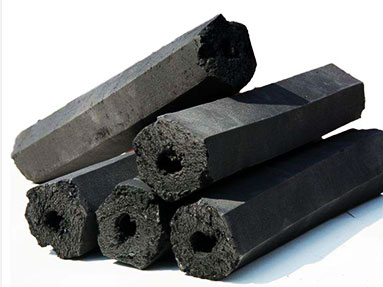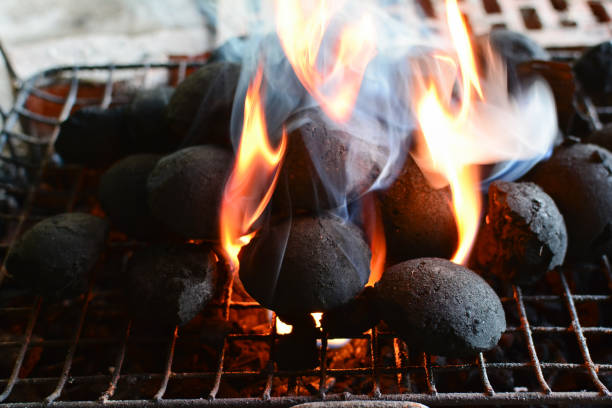In the realm of grilling, barbecuing, and even certain industrial applications, charcoal stands as a quintessential fuel source. However, the market offers not just one, but two prominent variants: charcoal and charcoal briquettes. Understanding the nuances between these two is pivotal for selecting the right option for specific needs.
Charcoal Unveiled
Charcoal, in its essence, is a carbon-rich material derived from the slow burning of wood or other organic matter in a low-oxygen environment, a process known as pyrolysis. This process results in a porous black substance rich in carbon content, which serves as an efficient fuel source due to its high energy density.
Delving into Charcoal Briquettes
On the other hand, charcoal briquettes from charcoal briquette making machine represent a specific form of charcoal. They are crafted by compressing a blend of charcoal, binders, and often additives into uniform shapes, commonly in the form of cylindrical blocks or hexagonal shapes. These briquettes undergo a manufacturing process that involves pressing the ingredients together using high pressure, sometimes coupled with the use of binders to maintain the structural integrity of the briquette.

Key Distinctions: Charcoal vs. Charcoal Briquette
- Composition: The fundamental disparity lies in their composition. Charcoal typically comprises purely carbonized wood or organic matter, while charcoal briquettes contain a mix of charcoal, binders (like starch), and occasionally additives for specific purposes, such as enhancing ignition or burning properties.
- Manufacturing Process: Charcoal obtained from a charcoal maker machine is predominantly a natural product obtained through the pyrolysis of organic matter. In contrast, charcoal briquettes undergo an industrial production process involving pressing and shaping the mixture into standardized forms.
- Consistency and Burn Characteristics: Charcoal briquettes are designed for consistency in burn time and temperature control due to their uniform composition and shape. On the other hand, traditional lump charcoal might offer varying sizes and shapes, leading to differences in burn rate and heat output.
Applications and Considerations
The choice between charcoal and charcoal briquettes often hinges on the intended application and personal preferences.
- Grilling and Barbecuing: Charcoal briquettes are favored by many grill enthusiasts due to their predictable burn time and steady heat output, ideal for precise grilling temperatures. However, some purists prefer charcoal for its authentic flavor and quick ignition properties.
- Industrial and Agricultural Uses: Charcoal finds extensive use in various industries, such as metallurgy, filtering, and soil improvement, owing to its purity and specific properties derived from the source material. See the coconut shell charcoal making machine here.
Environmental Considerations
In terms of environmental impact, the discussion between charcoal and charcoal briquettes is nuanced. While charcoal briquettes may contain additives and binders that can affect combustion emissions, their uniformity and efficiency often lead to cleaner and more controlled burning, potentially reducing overall environmental impact.
Conversely, traditional lump charcoal, though more natural in composition, might have higher variability in burning characteristics and could result in less efficient burning or emissions.

Conclusion: Choosing Wisely
In the quest to decide between charcoal and charcoal briquettes, it’s crucial to weigh the specific requirements of the intended use. Whether it’s the desire for consistent heat output in grilling, purity for industrial applications, or environmental considerations, both options have their merits.
Ultimately, personal preferences, cooking styles, and environmental priorities will dictate the preferred choice. Some might favor the convenience and predictability of charcoal briquettes, while others may opt for the authenticity and natural aspects of lump charcoal. Get more related information from Beston Group.